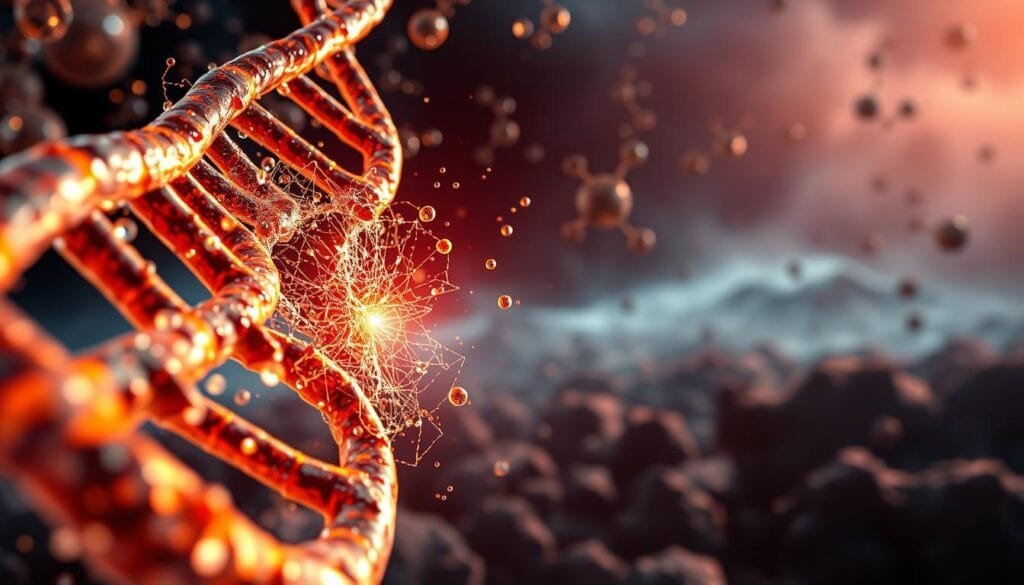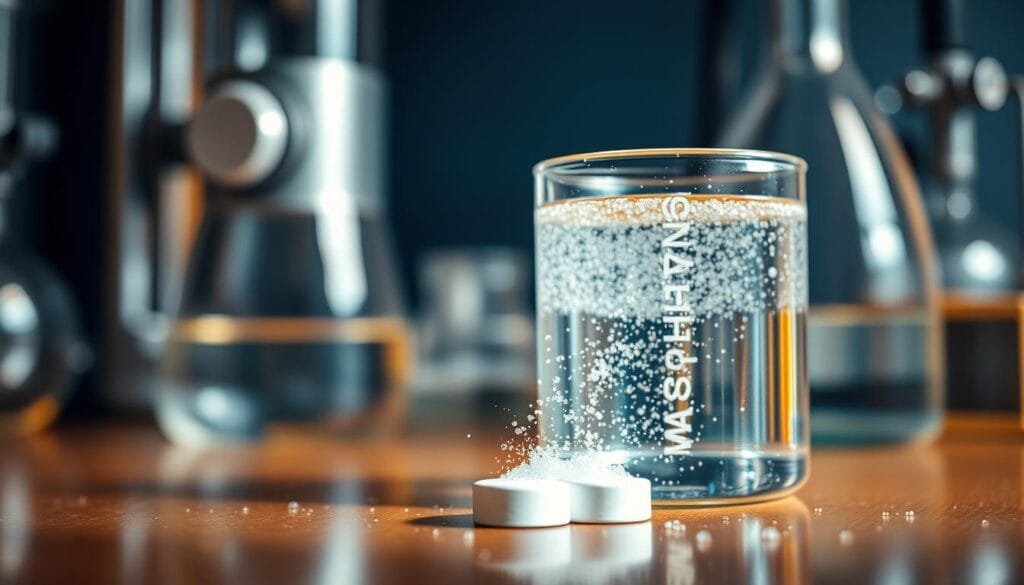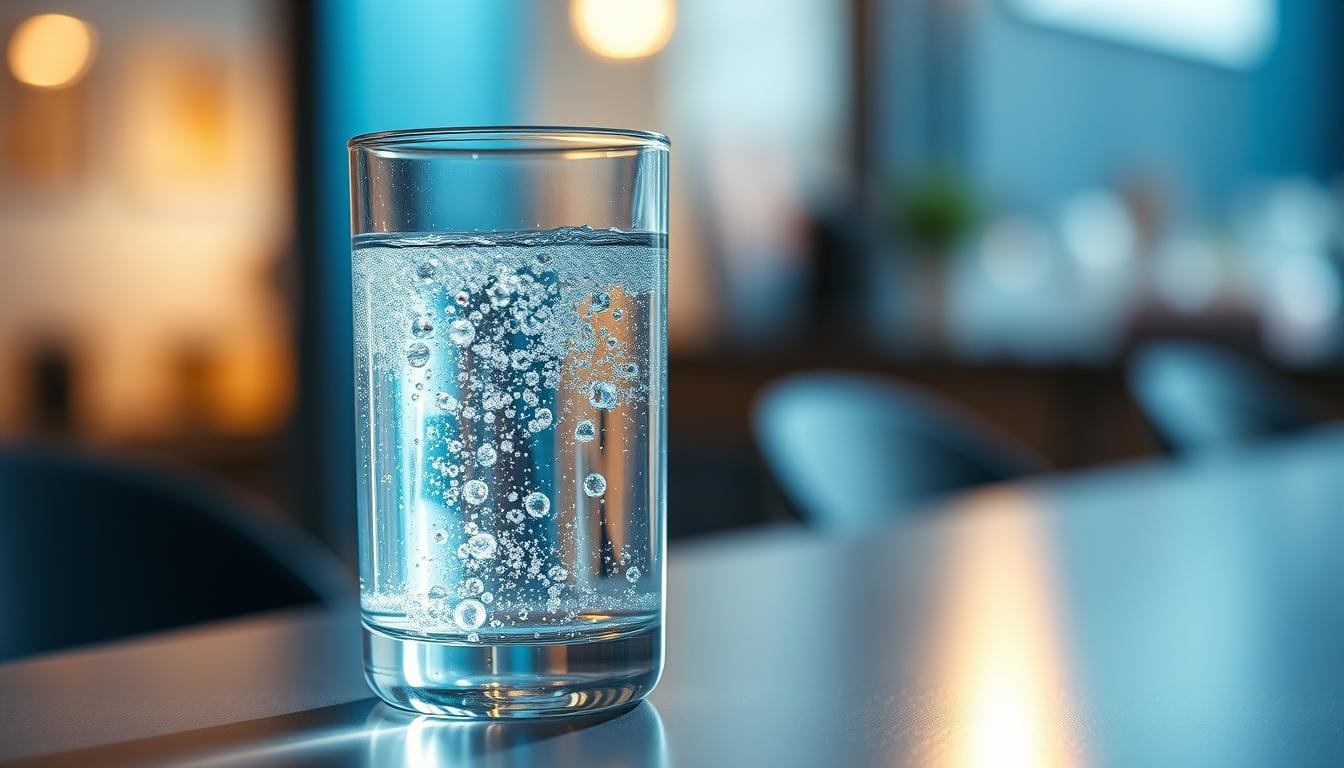Currently Empty: RM0.00
Could a can of fizz change how someone feels after a long day in Malaysia’s heat? This question invites a clear look at what the trend claims versus what solid studies show.
Wellness Concept explains how hydrogen water differs from plain water, why extra molecules are added, and what that might mean for the body.
Marketing touts benefits for inflammation, performance, and aging, but human studies are small and mixed. The product is generally recognised as safe in the U.S., yet concentrations and packaging vary widely.
Readers in Malaysia will get practical notes on packaging, timing, pricing, and when plain water remains the best daily choice. For personalised help, they can reach Wellness Concept via WhatsApp at +60123822655 during business hours: Monday–Friday 9:30 am–6:30 pm; Saturday–Sunday 10 am–5 pm.
Key Takeaways
- Compare promises with current studies to judge real value.
- Understand how extra molecules make this product different from plain water.
- Human research is limited; conclusions are tentative.
- Safety is generally accepted, but dosing and packaging matter.
- Cost and local climate make practicality key for Malaysian readers.
Hydrogen Water vs Regular Water: What It Is and Why It’s Trending
This trend adds dissolved H2 to standard hydration and promises benefits beyond basic fluid replacement.
Definition: Hydrogen water is plain water infused with extra molecular hydrogen (H2) so more hydrogen molecules are present than in regular water. In regular water, hydrogen is bound to oxygen as H2O; the added H2 exists as dissolved gas that may be absorbed differently by the body.
A common method to make hydrogen water is to dissolve hydrogen gas under pressure into sealed cans or pouches. Packaging matters because H2 can escape through permeable containers, so non-permeable cans or foil pouches preserve concentration better.
Products range from ready-to-drink cans and pouches to effervescent hydrogen tablets and countertop machines that make hydrogen on demand. Brands often cite antioxidant and anti-inflammatory effects as benefits hydrogen may offer, which helps explain why athletes and wellness shoppers are curious.
“Early trials suggest possible antioxidant effects, but human research remains limited.”
Marketing can outpace research. For budgeting, note a real-world example: about $90 for 30 cans (240 ml), with some brands advising multiple cans per day. Practical tips—use non-permeable containers and drink soon after opening—help retain dissolved H2 and preserve effects.
For readers who want more detail, Wellness Concept invites questions and offers guidance; see this post to get the facts straight.
Hydrogen Water: Miracle Drink or Overhyped Myth?
Human trials to date offer a patchwork of results—some benefits appear in specific groups, but others see no change.
Antioxidant claims are biologically plausible because molecular action may target reactive oxygen species. An 8-week trial in liver cancer patients reported lower hydroperoxide and preserved antioxidant activity. By contrast, a small healthy-adult study drinking 600 ml/day saw no change in oxidative stress markers.
Metabolic markers show early signals. Small randomized trials using roughly 0.9–2 L/day reported improved LDL, higher HDL, better antioxidant enzyme activity and lower inflammatory markers. One double-blind trial in metabolic syndrome used high concentrations and found improvements in glucose, HbA1c, lipids and body measures.

For athletic performance, limited studies suggest reduced blood lactate, less perceived muscle fatigue, and modest gains in sprint or endurance for some athletes. Results vary by ability and protocol.
Other areas under study include mood, liver function, dialysis fatigue, and adjunctive uses in cardiovascular care and oncology. Safety appears reassuring under GRAS status, but concentrations differ across products and dosing standards are lacking.
“Evidence is promising but not definitive; larger, longer trials with consistent dosing are needed.”
Bottom line: benefits hydrogen water remain possible but unproven for many uses. Malaysians who want personalized advice can WhatsApp Wellness Concept at +60123822655 during business hours.
Everyday Hydration or Performance Booster in Malaysia?
In Malaysia’s heat, practical hydration choices matter more than flashy tags. Plain water remains the healthiest baseline for most people. It meets everyday needs before, during, and after routine activity.
When plain water is still the healthiest choice
Regular water supplies steady hydration across a busy day. It is low-cost, widely available, and effective for preventing dehydration in hot, humid conditions.
People who work outdoors, older adults, and children should prioritise plain water for safety and overall health.
Where hydrogen-rich water may offer potential benefits
Early studies suggest enriched options might reduce exercise-induced lactate and perceived fatigue for some athletes. These effects appear situational and are not guaranteed.
Those with metabolic risk factors may consider trying hydrogen water alongside proven lifestyle steps. Use it selectively—for example, 15–30 minutes before intense exercise—and monitor results.
| Use case | Best baseline | When to consider enriched option |
|---|---|---|
| Daily activity, office, errands | Plain water regular water | Not needed |
| Pre/post intense exercise | Plain water plus electrolytes if needed | May try hydrogen water 15–30 min before exercise |
| Metabolic or inflammatory risk | Evidence-based diet and medical care | Consider cautious trial with medical advice |
| Budget-conscious use | Plain water | Buy small amounts first to test benefits |
Practical tips: choose non-permeable containers and drink soon after opening to retain dissolved gas. Keep plain water as the base and add enriched options selectively for targeted performance days.
“Prioritise simple hydration daily; use specialised products only for specific goals.”
For local guidance and product options, Malaysians can WhatsApp Wellness Concept at +60123822655. Support is available Monday–Friday 9:30 am–6:30 pm and weekends 10 am–5 pm.
How to Try Hydrogen-Rich Water: Products, Tablets, and Best Practices
Before investing, try a short, low-cost trial to see if enriched servings change recovery or daily energy.
Formats to consider
- Pre-packaged cans or pouches are convenient and portable for on-the-go use.
- Effervescent hydrogen tablets let someone make hydrogen water at home with regular drinking water.
- Home machines generate enriched servings on demand for frequent users who want lower per-day cost.
Maximizing potency
Because H2 molecules are tiny, non-permeable containers help retain gas. Drink soon after opening or mixing to get the highest concentration.
“Start small: test one format for several days and note any change in muscle recovery, fatigue, or energy.”

| Format | Pros | Cons |
|---|---|---|
| Pre-packaged cans/pouches | Convenient, sealed to hold gas | Higher per-serving cost |
| Effervescent tablets | Low entry cost, portable | Timing matters; mix and drink quickly |
| Home machines | Flexible, cheaper long-term | Higher upfront price, maintenance |
If someone wants local help, WhatsApp Wellness Concept at +60123822655 (Mon–Fri 9:30 am–6:30 pm; Sat–Sun 10 am–5 pm) for friendly guidance on formats, storage, timing, and realistic expectations.
Cost, Expectations, and Suitability
Practical concerns — price, packaging, and dosing — often decide if a product is worth trying.
Set realistic goals. Treat enriched servings as a supplement, not a guaranteed shortcut. The potential benefits depend on baseline health, training load, and consistency.
Price matters. A common retail example is about $90 for 30 cans (240 ml). If a brand suggests multiple cans per day, monthly cost can add up fast. Price out a plan before committing.
Variability is real. Concentrations and dosing are not standard. Two bottles can look similar but perform differently. Read labels and ask vendors for concentration data.
- People with metabolic, cardiovascular, renal, hepatic, or mental health issues should consult a clinician first.
- Consider a short trial: use consistent timing each day, track energy, recovery, and muscle fatigue, then compare weeks without it.
- Keep plain water intake robust; enriched servings should complement, not replace core hydration or medical care.
“Claims about anti‑aging and even slow changes need confirm by larger, longer studies.”
Need local advice? Malaysians can message Wellness Concept on WhatsApp at +60123822655 during business hours for personalised guidance on cost and suitability.
Conclusion
Preliminary trials show encouraging trends, but standardised, larger studies are needed to confirm effects.
Molecular hydrogen appears to offer antioxidant and anti‑inflammatory potential that may reduce oxidative stress in some groups. Small human studies also report modest gains in metabolic markers and exercise performance.
Safety looks acceptable under GRAS, yet dosing and concentration vary across brands and formats. Best practice is to use non‑permeable containers and consume soon after opening to preserve dissolved gas.
For Malaysians wanting local guidance, message Wellness Concept on WhatsApp at +60123822655 (Mon–Fri 9:30 am–6:30 pm; Sat–Sun 10 am–5 pm). Test options thoughtfully, pair with sound nutrition, sleep, and training, and watch new research for clearer answers.
FAQ
What is the difference between hydrogen-rich water and plain water?
They both hydrate, but the enriched option contains dissolved molecular gas intended to act as an antioxidant. Plain water restores fluids and supports all body functions. The enriched product may offer additional effects in some small human studies, but evidence is not definitive.
Are the antioxidant claims supported by research?
Early trials show reduced markers of oxidative stress in certain groups, but many studies are small or short-term. Larger, well-controlled human trials are needed to confirm meaningful health outcomes beyond lab markers.
Can it improve athletic performance or reduce muscle fatigue?
Some small studies report less fatigue, lower lactate after exercise, or faster recovery. Results vary by sport, dose, and timing. Athletes may try it, but it should not replace proven recovery strategies like proper rest, nutrition, and hydration.
Is it safe to drink daily?
Available research and regulatory reviews indicate a good safety profile for most people when products are used as directed. However, concentration varies by product, so buy from reputable brands and follow instructions. People with medical conditions should consult a clinician first.
How should one store and consume enriched products to keep potency?
Use non-permeable containers, avoid long storage times, and drink soon after opening or dissolving tablets. Exposure to air and warm temperatures reduces dissolved gas levels, so timely consumption preserves potency.
What forms are available and which is most reliable—pre-bottled, tablets, or machines?
Pre-bottled beverages offer convenience but may have lower concentrations by the time of purchase. Effervescent tablets and home generators can deliver stronger levels if used correctly. Machines require maintenance but provide ongoing access at higher potency.
Who should avoid trying these products without professional advice?
Pregnant or breastfeeding people, those on complex medication regimens, and people with serious medical conditions should consult a healthcare provider before starting any supplement-like regimen.
How much do these products cost and are they worth the price?
Prices vary widely—from affordable tablets to premium bottled brands and home systems. Value depends on individual goals: experimental use may be reasonable for some, while others may prefer to invest in proven hydration and recovery methods.
Are there standard dosing guidelines?
There is no universally accepted dosing standard. Studies use different concentrations and volumes, so follow manufacturer guidance and start conservatively. More research is required to establish optimal dosing.
Can it help with metabolic or liver conditions?
Preliminary human studies suggest potential benefits on some metabolic markers and liver enzymes, but evidence remains early. It should not replace standard medical treatments or lifestyle interventions recommended by a healthcare professional.
Where can someone in Malaysia get reliable products or advice?
Consumers should buy from trusted suppliers and check product testing for dissolved-gas levels. For tailored recommendations, contact Wellness Concept in Malaysia via WhatsApp at +60123822655 during business hours for product details and support.
If results are promising, why do experts still call for more research?
Many trials are small, short-term, or use different methods. Larger, longer, and well-controlled human studies are necessary to confirm benefits, determine who benefits most, and establish safe, effective dosing.


